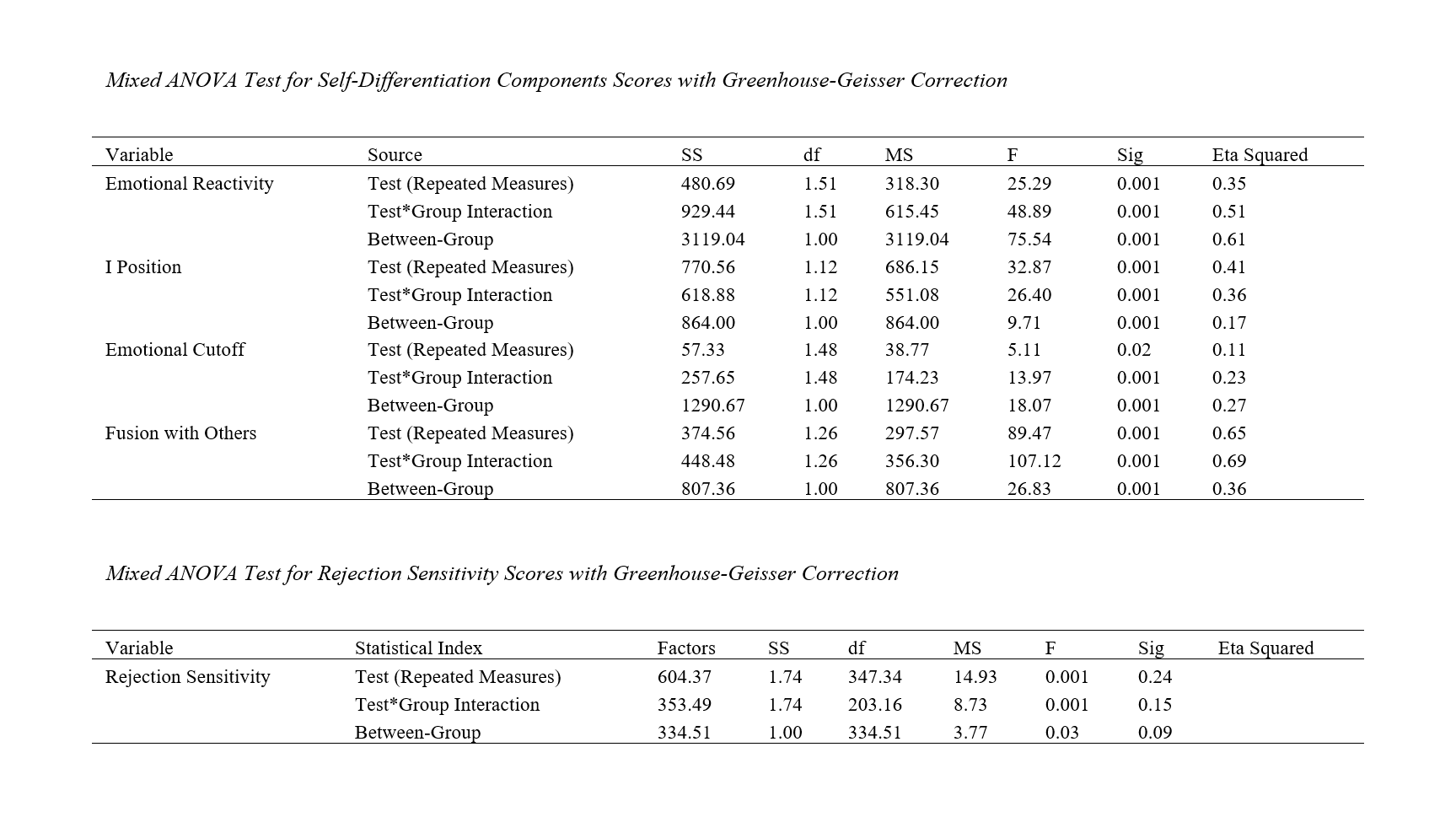Effectiveness of Schema Therapy on Self-Differentiation and Rejection Sensitivity in Patients with Borderline Personality Disorder
Abstract
Objective: The current research aimed to investigate the effectiveness of schema therapy on self-differentiation and rejection sensitivity among patients with borderline personality disorder in Shiraz in 2022.
Methods and Materials: The research method was a quasi-experimental design with a pre-test, post-test, control group, and follow-up. The statistical population consisted of all individuals with borderline personality disorder who visited counseling centers in Shiraz, from which 50 individuals were selected through purposive sampling and randomly assigned to either the experimental group (25 individuals) or the control group (25 individuals). The experimental group underwent 12 sixty-minute sessions of schema therapy, while the control group was placed on a waiting list. The instruments used in this study included the Borderline Personality Questionnaire (Claridge & Brookes, 1984), Self-Differentiation (Skowron & Friedlander, 1998), and Rejection Sensitivity (Downey & Feldman, 1996). Data analysis was performed in two parts: descriptive and inferential (repeated measures ANOVA).
Findings: The results indicated that schema therapy training has an impact on self-differentiation and its components (emotional reactivity, I position, emotional cutoff, and fusion with others) in individuals with borderline personality disorder. Furthermore, the results showed that schema therapy training affects rejection sensitivity in individuals with borderline personality disorder.
Conclusion: Based on the findings of this study, it can be concluded that schema therapy is an effective treatment for improving self-differentiation and rejection sensitivity in individuals with borderline personality traits. It is recommended that this therapy be used for individuals with borderline personality traits in clinical settings.
Downloads

Downloads
Additional Files
Published
Submitted
Revised
Accepted
Issue
Section
License
Copyright (c) 2024 Fariba Farmanbar (Author); Alireza Maredpour (Corresponding Author); Mohammad Malekzadeh (Author)

This work is licensed under a Creative Commons Attribution-NonCommercial 4.0 International License.








